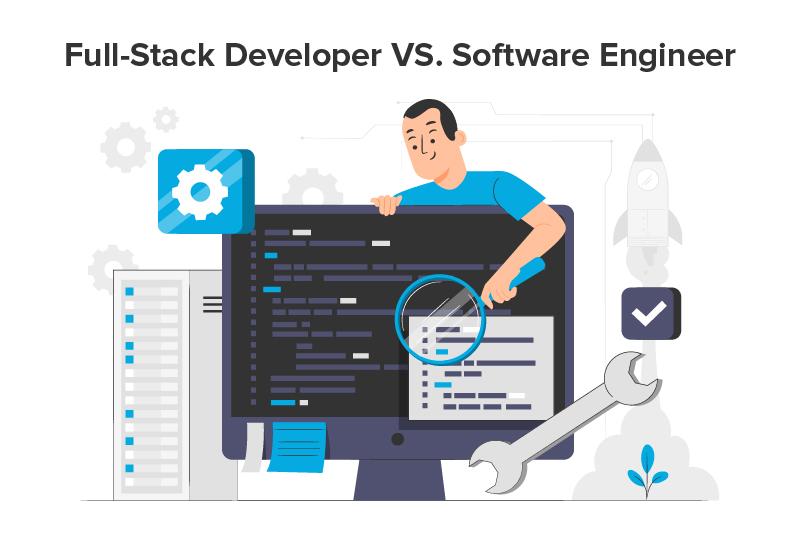Offshore Software Development: Affordable Solutions for Expanding Companies
Committed Developers vs. In-House Teams: Which Is Right for You?
The choice in between utilizing committed programmers and maintaining an internal team is a significant one that can influence the trajectory of your projects and general company approach. Conversely, in-house teams contribute to a cohesive firm culture and a nuanced understanding of long-term goals.
Understanding Devoted Developers
The growing demand for specialized abilities in the technology industry has resulted in the emergence of specialized designers as a viable option for several organizations. These experts are generally acquired on a project basis, enabling business to utilize particular proficiency without the lasting dedication related to full-time hires. Devoted designers are typically ingrained within a customer's team, offering versatility and scalability to fulfill project needs.
This design permits organizations to access a global skill swimming pool, which is particularly beneficial in a rapidly progressing technical landscape. Devoted programmers can be sourced from numerous geographical areas, ensuring that companies can discover the best ability at affordable rates. They often bring a wide range of experience and expertise, having actually serviced varied jobs across different industries.
Additionally, committed designers can focus solely on the tasks at hand, boosting performance and effectiveness. They are equipped to incorporate seamlessly right into existing process, collaborating carefully with in-house groups to accomplish project objectives. This technique not only decreases the concern of recruitment and training however additionally allows organizations to stay agile, adapting promptly to changing market demands and technological developments.
Benefits of In-House Teams

Furthermore, internal groups often tend to have a much deeper understanding of the business's mission, worths, and objectives. This placement can improve employee engagement and motivation, as staff member feel a lot more linked to their work and the organization's success. Additionally, having a committed in-house team permits better alignment of goals and approaches, as these participants are consistently concentrated on the business's concerns.
In-house teams likewise facilitate quicker decision-making processes, as they can react a lot more rapidly to difficulties and changes. The recognized relationships and familiarity with company procedures enable structured process and decreased miscommunication. Ultimately, the combination of a natural society, positioning with business goals, and effective communication makes in-house groups a beneficial property for several companies, especially those wanting to cultivate long-term development and development.
Price Considerations
When examining cost factors to consider, both specialized developers and internal groups existing unique economic ramifications for companies. Involving dedicated programmers usually includes a pay-per-project or per hour rate model, which can be cost-efficient for companies with fluctuating task demands. This technique permits flexibility in scaling sources up or down, ensuring that business just spend for the solutions they require.
In contrast, in-house teams require fixed prices, consisting of salaries, benefits, and overhead expenditures such as office room and equipment. While this design supplies higher control and prompt availability of resources, it may lead to higher long-lasting costs, particularly if the workload does not validate a full-time personnel.
Furthermore, companies should take into consideration the surprise prices related to recruitment and training of internal staff members, which can better stress spending plans. Sometimes, the time and sources invested in handling an in-house team can interfere Find Out More with the organization's core business objectives.

Project Monitoring and Versatility
Project management and versatility are vital aspects that affect the option between devoted designers and in-house groups. Dedicated programmers generally offer a high degree of adaptability, allowing companies to scale resources up or down based on project needs. This dexterity can be specifically useful for businesses experiencing fluctuating workloads or those seeking to introduce quickly. Dedicated teams frequently have actually established processes for handling tasks properly, leveraging details methodologies like Agile or Scrum, which assist in iterative progress and flexibility.

Eventually, the choice in between committed programmers and internal groups depends upon the wanted level of versatility and the specific project monitoring requirements. Business should assess their functional characteristics, task complexity, and resource schedule to determine which option lines up best with their tactical purposes.
Making the Right Choice
Picking the right advancement approach-- devoted developers or internal groups-- calls for a careful evaluation of various elements that line up with a company's strategic objectives. Conversely, in-house teams can provide better continuity and combination with existing workers.
Following, evaluate your budget plan. Devoted developers typically provide a cost-efficient service for short-term projects, while in-house groups may sustain greater lasting costs due to wages, benefits, and overhead expenses. Evaluate the degree of control and cooperation preferred; in-house groups commonly cultivate stronger communication and placement with firm culture.
Additionally, take into consideration the time frame. If prompt results are essential, dedicated programmers can be onboarded quickly, whereas constructing an in-house team requires time for recruitment and training. Ultimately, weigh the lasting vision of your organization. If continuous development is essential, purchasing an in-house group might generate much better returns over time. freelance web developer Inevitably, the choice pivots on a detailed analysis of these variables, making sure alignment with your firm's operational demands and overall objectives.
Conclusion
In conclusion, the choice between in-house teams and devoted programmers hinges on task needs and business objectives. Alternatively, in-house groups grow a natural culture and much deeper alignment with lasting goals.
The decision in between using dedicated programmers and maintaining an in-house group is Look At This a considerable one that can affect the trajectory of your projects and general organization approach.Job monitoring and flexibility are vital factors that affect the option in between internal teams and devoted programmers. software development staff augmentation.In contrast, in-house groups may succeed in maintaining a constant task monitoring structure due to their familiarity with the company's culture and lasting objectives. Dedicated programmers commonly present an affordable option for short-term tasks, while internal groups might incur greater long-lasting costs due to incomes, benefits, and expenses prices.In verdict, the choice between in-house groups and dedicated programmers pivots on job requirements and organizational objectives